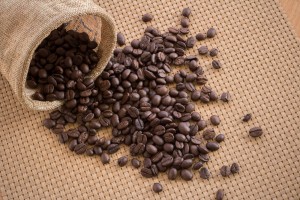In a shock move announced last week, chocolate giant Cadbury announced that from May 2017, their chocolate would no longer be Fairtrade labelled as prominently as it is at present. It sent waves of shock and outrage throughout the consumer base and the chocolate industry, with questions asked about the validity of continuing to use the label – albeit less prominently. Cadbury was equally quick to counter claims by pointing to valid reasons for doing so. Fairtrade is not being completely dropped, but it will move aside for their own scheme.
Cadbury’s Reasons for Dropping Fairtrade
Cadbury’s was founded on Quaker principles of fairness in the early 1800s. Therefore, when the company adopted Fairtrade in 2009, it was hailed as a major breakthrough in getting back to its roots and leading the way for a fairer system of big business. Its move prompted many other businesses to use ethical ingredients (not just Fairtrade Foundation, but Rainforest Alliance and others too). Now, eight years later, Cadbury is dropping the Fairtrade brand to the back of the package to many complaints from shoppers and industry analysts alike.
 Cadbury’s move is not one born purely from profit in a difficult market. Cadbury’s American owner Mondelēz International claimed that the company still has a commitment to ethical farming – pointing to that their packaging would still have Fairtrade as a registered partner. This move to minimise Fairtrade labelling from 2017 is simply a move towards their own ethical brainchild: Cocoa Life. This will become prominent on the packaging. Cadbury say that by 2019, the UK will consume five times more ethically and sustainably produced chocolate than it does at present.
Cadbury’s move is not one born purely from profit in a difficult market. Cadbury’s American owner Mondelēz International claimed that the company still has a commitment to ethical farming – pointing to that their packaging would still have Fairtrade as a registered partner. This move to minimise Fairtrade labelling from 2017 is simply a move towards their own ethical brainchild: Cocoa Life. This will become prominent on the packaging. Cadbury say that by 2019, the UK will consume five times more ethically and sustainably produced chocolate than it does at present.
How Will This Impact Cadbury?
Critics say that the Cocoa Life label is meaningless as it is an industry standard for Cadbury products and not independent like Fairtrade or Rainforest Alliance. Numerous small chocolate producers have spoken out, stating that Cadbury should have no right to the Fairtrade label as they will no longer use Fairtrade ingredients in their products. They feel that this will only confuse the consumer further about what is and is not Fairtrade certified. However, as part of the “partnership” with Fairtrade Foundation, the organisation has stipulated a number of rules by which Cocoa Life must comply in order to maintain the Fairtrade label.
At present, Fairtrade Foundation sets a minimum price of $2000 (US) per metric tonne of cocoa; that is around £1,600. Cocoa Life does not have a minimum cost. The main stipulation is that farmers in the developing world under the Cocoa Life scheme should not earn less than farmers who work for farms in the Fairtrade programme. It is worth noting that farmers in Ivory Coast and Ghana working under the Cocoa Life scheme are paid more than their Fairtrade counterparts. However, this is due to national law rather than scheme policy.
Is it the End of Fairtrade?
Although some media outlets have proclaimed that this is the start of a slow demise for the Fairtrade Foundation, it is unlikely to have a significant long-term effect. When Cadbury decided to adopt the label in 2009, it was seen as an important and massive coup for ethical trading and a positive move for the giants of industry for our most popular and profitable luxury goods.
However, Cadbury is not the only big name label with a Fairtrade Foundation logo. Green & Black’s, Divine, M&S, Co-Op own brand, Sainsbury’s own brand, Waitrose own brand, RAWR and Raw Chocolate Co still have the label. These are just the chocolate brands, ignoring that Fairtrade also applies to some of our major tea, coffee and sugar brands. Some of these are very popular brands so claims that Fairtrade Foundation is about to cease trading has very little basis.



